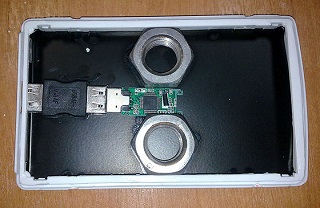Beware of counterfeit SSDs how to protect your data from loss
Beware of counterfeit SSDs - how to protect your data from loss
 Every year many computer users from pole to pole share horrible stories about fake data storage devices they bought on the Internet. Specialized online forums for IT-savvy users are full of I-was-duped threads where people describe their experience in using counterfeit HDDs, SSDs and USB Flash drives.
Every year many computer users from pole to pole share horrible stories about fake data storage devices they bought on the Internet. Specialized online forums for IT-savvy users are full of I-was-duped threads where people describe their experience in using counterfeit HDDs, SSDs and USB Flash drives.
Actually, you may face fake products here there and everywhere. However, knockoff data storage devices pose a particular thread to both corporate and individual computer owners as they may easily corrupt sensitive information and cause permanent data loss.
When it comes to counterfeit solid state drives, there are two main problems users encounter most of all:
- actual drive's' capacity is far different from the claimed one;
- the drives use downscale chips which can't provide the appropriate level of data safety.
Fortunately, there are a few more or less sure ways to spot a fake solid state drive or USB Flash drive and avoid risks to precious files. All you need is to keep in mind the following set of recommendations:
- Use brand products, keep away from little-known vendors. These days SSDs manufactured by renowned vendors go with a warranty and proprietary solutions preventing user data from corruption and loss. As for nameless data storage devices, it is better to ignore them in order to avoid possible data-related problems. Still, if you want to use a noname SSD, make sure you have the most recent data backup around. Just in case.
- Pay close attention to the labels and their shape. It's not a secret that brand products usually come with lots of specific labels and stickers. Fakers know that for sure. That is why counterfeit data storage devices contain stickers that look really familiar. Fortunately, fake remains a fake in most case. That can be seen from the product labeling: knockoff units usually have pale rectangle labels that have no glossy finish. In addition, a brand logo may look different. When it doubt, try to google for actual brand logos in order to see the difference and avoid falling prey to fakers.
- Phony data storage devices usually have no special prints with 3D effect on the back.
- Brand SSDs usually have serial numbers you can confirm on the manufacturer's website. If the number of your solid state drive is not accepted, that means it's nothing but a fake.
- Very often counterfeit SSDs feel kind of soft. They even can bend like rubber. On the contrary, genuine products feel sturdy. So, trusting the tactile impressions makes sense when choosing a reliable solid state drive for the lightning-fast and safe data processing.
Another nasty thing about phony SSDs and USB Flash drives is that no data recovery company, even the most reliable one, cannot guarantee a successful file recovery from questionable data storage device.
To avoid an unpleasant experience and prevent critical data from corruption and loss, rely on your common sense and choose only proven data processing/storage solutions.
